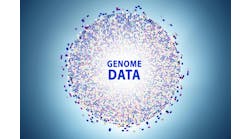As the national All of Us research program begins collecting health data, its Research Hub, which will house an array of data collected in the program, is developing software tools to help researchers explore and analyze the All of Us Research Data Set.
The Data and Research Center (DRC) located at Vanderbilt University Medical Center houses the All of Us research database. In a newsletter, the Research Hub noted that in 2019 it expects to release information that participants provided via surveys, physical measurements, and electronic health records. Researchers will be able to access participant research data, with personal identifiers removed in order to explore how various factors contribute to individual health and disease.
The EHR information included depends on what kinds of healthcare has been received and what types of providers a patient has seen. The All of Us Research Program employs Observational Medical Outcomes Partnership (OMOP) Common Data Model (CDM) Version 5 infrastructure to ensure feasibility and standardization across EHR data for researchers. EHR data will be accessed longitudinally throughout the life of the program. Within the context of the Research Hub tools, EHR data will be presented at the highest level of granularity, which is by EHR Domain. Domains include: Demographics, Conditions, Procedures, Drugs, Measurements, and Visits.
In the first half of 2019, the DRC plans to release a Data Browser that will allow anyone to view aggregate counts of participant research data. Counts will be available for survey data collected from participants, physical measures collected during exams, and medical concepts from electronic health records (EHR) data. This tool will be available to anyone, with no registration or login required.
A “Researcher Workbench” is slated for release by the end of 2019. The Workbench is an analysis platform designed for researchers to create cohorts of individual-level participant research data, review these cohorts, and analyze and visualize the data in a Jupyter notebook using Python or R.
The initial version of the Workbench provides three tools for working with data:
• Workspaces: Create a project workspace. Store cohorts and notebooks. Share with team members.
• Cohort Builder: Build and review a custom data set.
• Notebooks: Analyze your cohort. Create graphs or tables to showcase your work.
To ensure participant privacy, researchers will be required to register and verify their identity in order to use the Workbench.
The DRC noted that it has sought input from an array of potential users of the Research Hub, collated their feedback, and leveraged these insights to help guide iterative development of the tools. Currently, the Research Hub is in its first beta launch within the DRC. The purpose of this release is to open the Research Hub up to vigorous internal testing that includes quality control, quality assurance, data characterization, data validation, and user testing as well as security and functionality testing.

